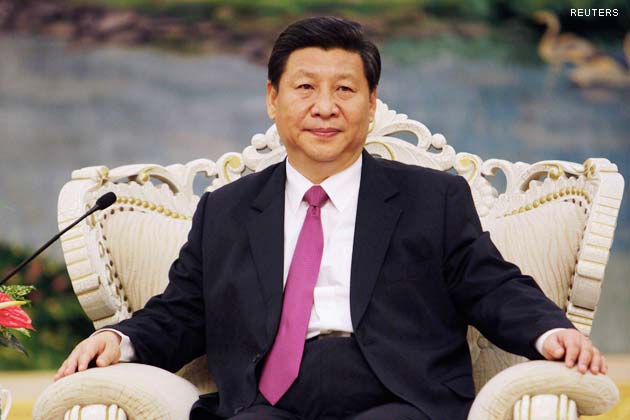Reading Time: 3 minutes
The return to Marxist roots is a demonstration that the CPC seems well aware of the contradictions and questions raised by its program of market reform and opening up. Back in 2016, Xi went so far as to publicly announce, “The whole party should remember, what we are building is socialism with Chinese characteristics, not some other –ism.” Here’s an analysis, for Different Truths.
Make time for Marxism. That’s the advice Chinese president and Communist Party leader Xi Jinping gave his members this week. On Monday, while presiding over what Xinhua News Agency described as “a group study session of the Political Bureau,” Xi stressed the importance of The Communist Manifesto, written by Karl Marx and Frederick Engels some 170 years ago, and told the party’s 90 million adherents to devote themselves to studying it.
The push for cadres to brush up on their ideological knowledge comes just in time for Marx’s 200th birthday on May 5 and at a moment when China’s “socialist market economy” model is again being discussed internationally, especially in light of the leadership succession in Cuba.
For a long time now, the question of just how socialist the system of “socialism with Chinese characteristics” really is has been a point of contention on the left. Economics professors Martin Hart-Landsberg and Paul Burkett, for instance, argued more than a decade ago that “China’s market reforms have led not to socialist renewal but rather to full-fledged capitalist restoration.”
Meanwhile, no less an authority than former Cuban president Raúl Castro recently claimed that China has shown that “the rules of supply and demand”—i.e. the market—are “not at odds” with the socialist principle of planning. In fact, he believes Cuban Communists have a lot to learn from the Chinese.
The debate among socialists over the mix of plan and market—and the matter of whether China’s economy is capitalist or socialist—is not likely to be definitively resolved any time soon. But Xi’s directive suggests that in the world’s biggest country, the market still has to give way to Marx, or at least some version of him.
In his remarks to the Political Bureau, Xi called the Manifesto a “monumental work” with “a scientific perspective on the development of human society,” and said it was written to “seek liberation for humanity.” Going further, he told CPC members that if the party is to have any hope of solving the practical problems of contemporary China, then its grasp of “the basic principles of Marxism” has to be “enhanced.”
Exactly which of the “basic principles” have to be enhanced was left a bit vague, however. The Chinese language report on his speech shows a heavy emphasis on the historical materialist method of understanding social development, internationalism, and the “advanced character of Marxist political parties.” Xi also recalled Marx and Engels’s analysis of globalization in the Manifesto and said that it falls to countries like China to make the international economy more inclusive and balanced.
The Xinhua report, however, has kept many issues vague as far as the Chinese supremo’s address is concerned. Class struggle, for instance, which few can deny exists in China today, apparently went unmentioned. The crisis tendencies inherent in a market-based economy, another central feature of the Manifesto’s analysis, also failed to feature. The various sectors of the bourgeoisie that Marx and Engels targeted and which have all seen their number increase in China over the past 40 years—the manufacturer, the landlord, the shopkeeper, the pawnbroker, and more—don’t crop up in the summaries of Xi’s speech. Nor do workers, who still have chains to lose and a world to win—even in China.
Despite the possible absence of some of the key concepts most associated with the Manifesto in his speech, Xi’s open call for Chinese Communists to return to the classics of socialism is in line with the Marxist renaissance that has characterized his time as CPC leader.
In 2012, a National Ideology Center devoted to research in Marxism-Leninism was established on his initiative. There have been multiple education campaigns aimed at strengthening the ideological training of party leaders and members, and universities have made the teaching of Marxism a higher priority for students.
The return to Marxist roots is a demonstration that the CPC seems well aware of the contradictions and questions raised by its program of market reform and opening up. Back in 2016, Xi went so far as to publicly announce, “The whole party should remember, what we are building is socialism with Chinese characteristics, not some other –ism.”
It is in this context that this week’s spotlight on The Communist Manifesto should be understood. Overseeing the transition of a developing economy in a world in which the laws of capitalism and powers hostile to socialism still hold sway, it can’t be easy to keep to a Marxist path. Just look at the experience of the Soviet Union. But if Xi Jinping and the CPC succeed in popularising the works of Marxism—and their critical essence—among 1.3 billion people, perhaps China will have a shot at it.
C.J. Atkins
The writer is the managing editor at People’s World.
©IPA Service
Photo from the Internet















